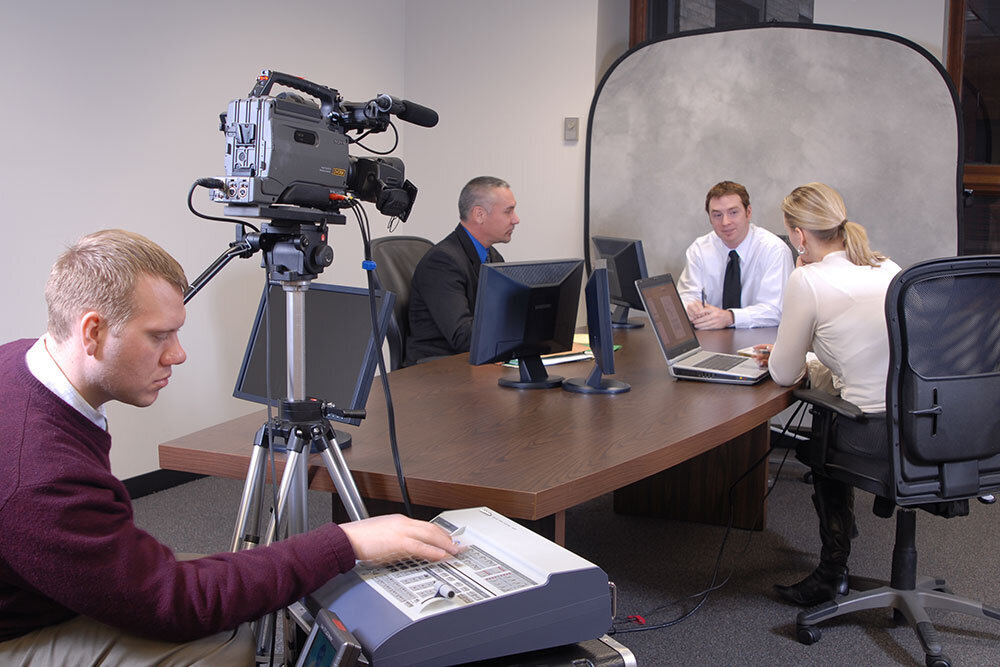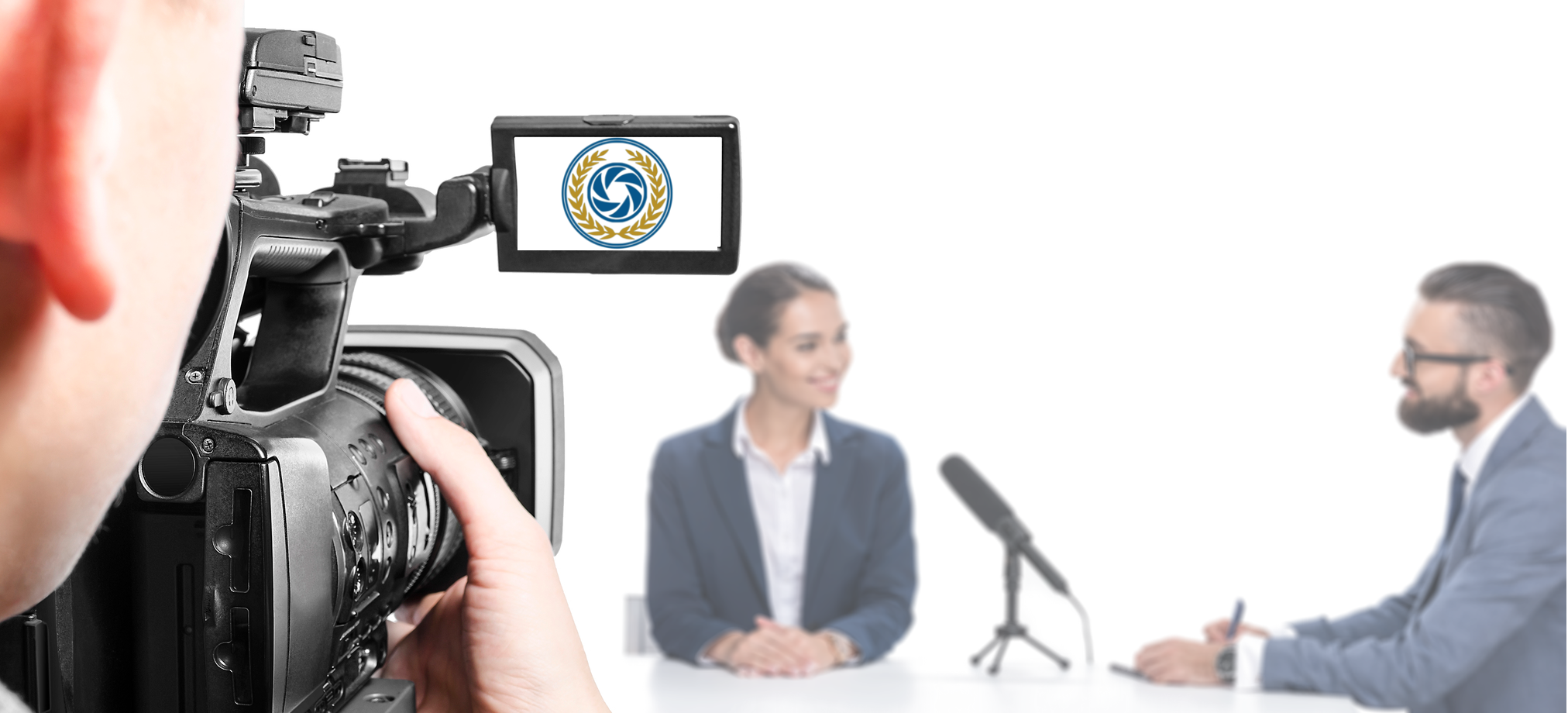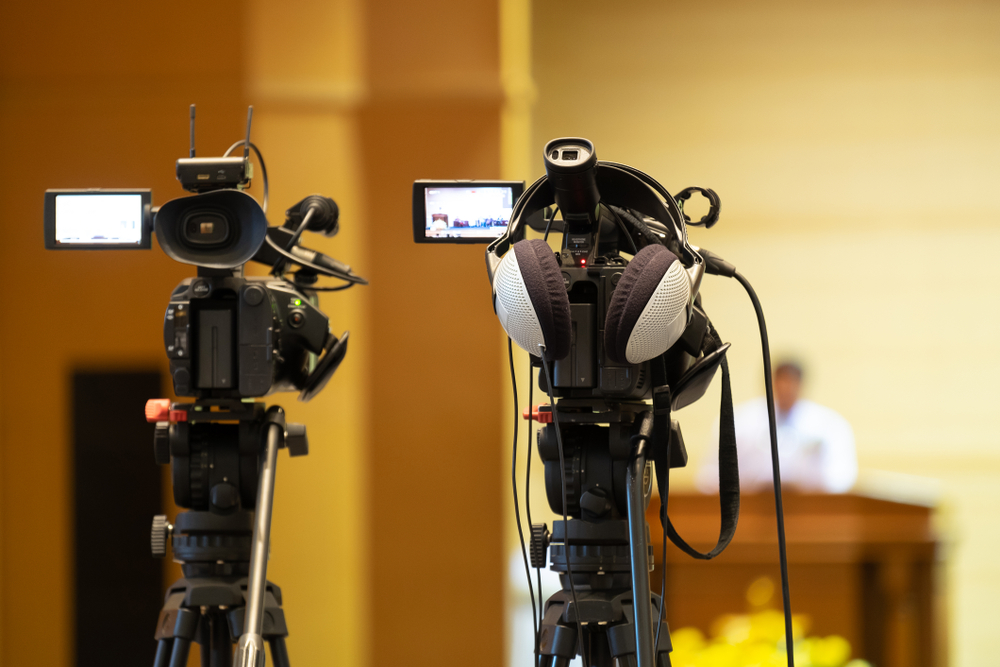The Relevance of Lawful Video Clip Depositions in Modern Legal Solutions: What You Must Know
Legal video clip depositions have actually ended up being vital in today's lawful landscape. They provide a multidimensional sight of witness statements that traditional records simply can not match. By catching both verbal and non-verbal communication, these depositions enhance the overall understanding of a witness's reliability. The efficiency of video clip depositions hinges on different elements, consisting of compliance with lawful requirements and ideal techniques. Exploring these aspects reveals their real importance in modern-day legal solutions
What Are Lawful Video Depositions?
Lawful video depositions act as an important tool in the lawsuits process. They entail tape-recording witness testaments in a video style, capturing both verbal and non-verbal communication. This approach enables lawyers to document the behavior, expressions, and responses of witnesses, providing a richer context for the statement. Commonly performed in a controlled atmosphere, these depositions are led by lawyers that ask questions while a stenotype reporter documents the discussion. The resulting video can be essential for test prep work, as it enables attorneys to evaluate the reputation of witnesses and refine their techniques. Furthermore, lawful video depositions can be used in numerous lawful contexts, varying from civil disputes to criminal cases. The visual and acoustic components of video clip depositions enhance the presentation of evidence, making it a vital element in the contemporary legal landscape. Overall, they contribute significantly to the efficiency and efficiency of lawful process.

Advantages of Video Depositions Over Conventional Techniques
Video depositions provide many advantages compared to conventional approaches of taking witness testaments. One substantial advantage is the capacity to record both audio and aesthetic aspects, supplying a much more complete document of the witness's statements. This twin layout boosts clearness and permits attorneys to reference specific nuances throughout test prep work. In addition, video depositions facilitate remote participation, making it simpler for witnesses who might be not available for in-person appearances due to geographical restraints or wellness issues.Moreover, video depositions can speed up the overall deposition process, decreasing the moment and expenses connected with travel and logistics. They additionally improve ease of access, as tape-recorded depositions can be easily shared among lawful teams and referenced at any moment. This benefit adds to far better situation monitoring and prep work. Overall, video clip depositions represent a modern-day, efficient approach to collecting witness testimonies, aligning with the advancing demands of the lawful profession.
The Function of Body Movement and Tone in Testimonies

In legal video depositions, body movement and tone play important roles in conveying a witness's reputation and credibility. Nonverbal hints can provide insights into a witness's mood, affecting how their statement is regarded. Understanding the effect of these aspects is crucial for attorneys and jurors alike when assessing the integrity of a testament.
Nonverbal Interaction Insights
While verbal communication is commonly stressed in lawful testimonies, nonverbal cues such as body language and tone play an important function in sharing reliability and feeling. Onlookers of depositions might keep in mind that a witness's pose, motions, and face expressions can greatly affect assumptions of dependability. For example, regular eye contact may signal confidence, while preventing stare could suggest dishonesty or pain. In a similar way, the intonation-- its volume, rate, and pitch-- can impart sensations of genuineness or uncertainty. Lawyers should be attuned to these nonverbal signals, as they often offer crucial context that complements spoken words. Comprehending these nuances can improve the performance of depositions and affect the end result of legal proceedings.
Psychological Tone Impact
The emotional tone conveyed during legal testaments considerably impacts exactly how a witness is perceived. Body movement, vocal inflections, and face expressions play essential duties in forming the story of a testament. A witness showing confidence via consistent eye contact and a tranquil tone can impart a sense of integrity and involvement. On the other hand, indications of anxiousness, such as fidgeting or an unstable voice, might result in apprehension regarding their account. The nuances of emotional expression can affect the analysis of realities, making it essential for legal specialists to recognize these signs. In video depositions, the visual and acoustic elements incorporate, highlighting the relevance of psychological tone in communicating genuineness and truthfulness within the legal procedure.
Integrity and Dependability
An important variable in establishing trustworthiness and reliability during testimonies hinges on the witness's body language and intonation. Observers commonly rely upon non-verbal cues-- such as eye get in touch with, pose, and motions-- to analyze a witness's sincerity. A witness who maintains eye contact and displays open body language may be viewed as even more reliable and straightforward than one that stays clear of eye call or appears shut off. Furthermore, tone of voice plays a crucial duty; a constant, tranquil tone can strengthen the integrity of the testament, while variations in pitch or volume may increase uncertainties. Eventually, the combination of body language and vocal tone greatly affects how a witness's declarations are received and interpreted in a lawful context.
Best Practices for Conducting Video Clip Depositions
Carrying out video depositions requires mindful planning and execution to assure a efficient and clear presentation of testimony. Initially, it is crucial to choose a silent, well-lit place to reduce distractions and safe ideal video quality. The devices ought to be tested in development, including electronic cameras, microphones, and illumination, to prevent technical issues throughout the deposition.Next, events entailed have to examine the format and treatments beforehand, making certain that every person comprehends their functions. The deponent should be oriented on the procedure, including exactly how to respond plainly and concisely.Additionally, maintaining a professional temperament throughout the session is necessary. This includes avoiding talking over one another and validating that all questions are guided appropriately. Ultimately, it is vital to tape-record the deposition in a layout that enables very easy playback and testimonial, maintaining the integrity of the statement for future use.
Lawful Considerations and Compliance Issues
Exactly how do lawful factors to consider and conformity concerns affect the effectiveness of video depositions? Lawyers need to navigate an intricate landscape of laws, ensuring that video depositions follow administrative guidelines and requirements. Conformity with regulations concerning privacy, authorization, and recording methods is essential. As an example, acquiring explicit approval from all celebrations entailed is essential to stay clear of legal repercussions.Additionally, the admissibility of video clip proof in court can depend check it out upon compliance with step-by-step needs. Making sure that the devices made use of satisfies technical criteria is additionally essential, as poor quality can threaten the deposition's reliability.Moreover, attorneys must recognize any type of particular state laws that control video depositions, as these can differ substantially. Failing to deal with these factors to consider can not just jeopardize the honesty of the deposition yet also influence the overall situation method, eventually affecting the customer's legal end results.
Exactly How Video Depositions Impact Court Perception
While video clip depositions can function as effective tools in legal process, their influence on court understanding is significant. The auditory and aesthetic components of video recordings provide jurors with a more detailed understanding of witness behavior, trustworthiness, and emotional feedbacks. This multimedia method can improve the jurors' capacity to evaluate the dependability of testament compared to standard text-based transcripts.Moreover, video clip depositions allow jurors to observe body movement, intonation, and faces, every one of which can influence their interpretation of the witness's statements. The visibility of a witness on display can humanize them, fostering empathy and link, which may persuade jurors' point of views. On the other hand, a witness that shows up evasive or untrustworthy on video clip might lead to adverse perceptions that influence a jury's decision. Eventually, the vibrant nature of video clip depositions plays a vital role fit exactly how jurors analyze proof and reach their verdicts.
The Future of Video Depositions in Legal Technique
As advancements in technology remain to reshape the legal landscape, the future of video depositions is poised for significant advancement. Advancements such as artificial intelligence, virtual reality, and enhanced video conferencing tools are expected to streamline the deposition process and boost ease of access. Legal experts may utilize AI-driven analytics to assess witness integrity and instance stamina a lot more effectively.Moreover, the combination of online reality could allow juries to experience immersive simulations of depositions, giving much deeper context and understanding. In addition, the pattern towards remote depositions is likely to persist, supplying better adaptability for clients and lawyers alike.As remote job ends up being increasingly stabilized, video clip depositions will likely end up being common practice, decreasing expenses and time constraints connected with typical methods. Overall, these technological improvements guarantee to enhance the effectiveness, effectiveness, and ease of access of video clip depositions in lawful method, inevitably changing how lawful experts prepare for test.
Regularly Asked Concerns
Just How Much Do Legal Video Clip Depositions Usually Expense?

Can Video Clip Depositions Be Made Use Of in Any Kind Of Kind of Instance?
Video clip depositions can be used in various types of instances, including civil, criminal, and family members regulation. Their versatility enables attorneys to existing witness statements successfully, adapting to the specific demands of various legal circumstances.
What Devices Is Needed for a Video Deposition?
To perform a video deposition, vital equipment consists of a top quality camera, microphone, lights, and a trusted recording tool. Furthermore, a computer with editing and enhancing software application may be essential for post-production and formatting the final video clip.
For how long Does a Normal Video Deposition Last?
A typical video deposition lasts in between two to 4 hours, depending on the intricacy of the case and the number of inquiries positioned. Extensive sessions may take place, but breaks are normally incorporated for participant convenience.

Are Video Clip Depositions Admissible in Court?
Video clip depositions are usually admissible in court, offered they comply with legal requirements read this and policies of proof. Get More Info Their usage improves clearness and protects witness statement, helping in the judicial process during trials and hearings. Lawful video clip depositions have actually come to be crucial in today's lawful landscape. Furthermore, legal video depositions can be utilized in various legal contexts, varying from civil disagreements to criminal instances. In addition, video clip depositions assist in remote involvement, making it simpler for witnesses who might be inaccessible for in-person appearances due to geographical constraints or wellness issues.Moreover, video clip depositions can accelerate the overall deposition process, lowering the time and expenses connected with travel and logistics. Making certain that the devices used meets technological requirements is also important, as inadequate high quality can undermine the deposition's reliability.Moreover, lawyers should be mindful of any type of specific state regulations that regulate video clip depositions, as these can differ significantly. Additionally, the fad toward remote depositions is most likely to persist, supplying higher adaptability for attorneys and customers alike.As remote work ends up being progressively normalized, video depositions will likely become typical method, reducing prices and time constraints connected with traditional techniques.
Comments on “How judges and juries evaluate credibility through legal video depositions”